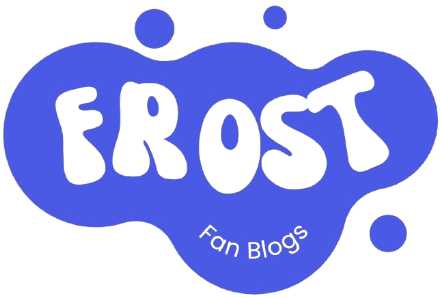Nutrition, a vital component of our overall well-being, is best understood through a balanced diet that fuels our body, promotes healthy growth, provides energy, and supports our immune system. In a world brimming with information, it’s crucial to discern between factual advice and popular myths. This article is your compass, guiding you through the realm of nutrition, current trends, and practical tips for healthier dietary choices. And rest assured, all insights are sourced from reputable sources like Times Health Magazine’s nutrition section.
What Is Nutrition?
Nutrition refers to the process by which the body absorbs and utilises food. This encompasses not only the food we eat but also how our bodies absorb, digest, and process nutrients. Proper nutrition is essential to provide the body with the necessary substances it needs to function optimally. The key nutrients that are necessary for survival include carbohydrates, proteins, fats, vitamins, and minerals. Each plays a specific role in maintaining our body’s balance, whether that’s for energy, growth, or disease prevention.
To gain a better understanding, we can refer to Wikipedia’s page on nutrition, which provides a detailed explanation of how the body utilises nutrients. For more information, visit this link: Nutrition – Wikipedia.
Current Nutrition Trends
Over the years, various nutrition trends have emerged and faded, but some have endured. Today, there are several popular dietary choices that people are adopting to improve their health:
Plant-Based Diets
Plant-based diets are gaining popularity due to their potential health benefits, including a reduced risk of heart disease and type 2 diabetes. This trend is part of the broader movement towards veganism and vegetarianism, emphasising whole, unprocessed plant-based foods.
Low-Carb/High-Protein Diets
Low-carb and high-protein diets, such as the ketogenic (keto) diet, have garnered significant attention for their potential to aid in weight loss and enhance metabolic health. These diets restrict carbohydrate intake while emphasising protein and fats to induce a state of ketosis in the body.
Intermittent Fasting
Intermittent fasting (IF), a dietary trend involving cycles of eating and fasting, has gained popularity as a weight loss and metabolic health strategy. However, it’s important to approach this trend with caution, as it may not be suitable for everyone. Remember, not all trends are one-size-fits-all, and it’s crucial to consider your individual health needs before jumping on the bandwagon.
For a deeper dive into these nutrition trends, refer to the article on Wikipedia’s page on dietary trends Dietary trends – Wikipedia.
The Importance of a Balanced Diet
A balanced diet is fundamental to good health. Consuming a variety of foods from all food groups carbohydrates, proteins, fats, vitamins, and minerals—ensures that your body gets the nutrients it needs. The body functions optimally when nourished with the right amounts of these essential nutrients.
Why Balance Matters:
- Carbohydrates: Provide the body with energy.
- Proteins: Help in building and repairing tissues.
- Fats are essential for brain health and energy storage.
- Vitamins and Minerals: Support immune function and prevent deficiencies.
When following a balanced diet, it’s crucial to include fruits, vegetables, whole grains, lean proteins, and healthy fats while limiting processed foods, excess sugar, and salt.
The Role of Nutritional Supplements
While a balanced diet should provide most of the nutrients your body needs, supplements can play a role in filling nutritional gaps, especially when dietary restrictions are present. For example, people following vegan diets may need to supplement with vitamin B12, as it is primarily found in animal products.
Nutritional supplements, including vitamins, minerals, omega-3 fatty acids, and protein powders, can help ensure that your body receives sufficient amounts of the essential nutrients it needs. However, it’s essential to consult with a healthcare professional before starting any supplement regimen to ensure that it’s necessary and safe.
Nutrition’s Impact on Mental Health
It’s not just our physical health that benefits from good nutrition. What we eat also has a significant impact on our mental health. Research has shown that a healthy diet can enhance brain function, improve mood, and promote overall mental well-being. Eating a diet rich in fruits, vegetables, healthy fats, and lean proteins can help maintain cognitive function and reduce the risk of mental health issues such as depression and anxiety.
Certain foods are particularly beneficial for brain health, such as:
- Fatty Fish: Rich in omega-3 fatty acids, which support brain function.
- Leafy Greens: Contain antioxidants that protect the brain from oxidative stress.
- Berries: Packed with antioxidants that help improve memory and cognitive function.
Practical Tips for a Healthier Diet
Now that you understand the importance of nutrition, here are some practical tips to help you incorporate healthier eating habits into your daily life:
- Meal Planning: Plan your meals ahead of time to ensure you’re eating a variety of nutrient-dense foods.
- Reading Nutrition Labels: Learn how to interpret nutrition labels to make informed food choices while shopping.
- Mindful Eating: Take the time to enjoy your meals without distractions, which can help you avoid overeating and improve digestion.
Debunking Common Nutrition Myths
Countless myths and misconceptions about nutrition can confuse and mislead people. Let’s debunk some of the most common ones:
- Myth 1: Carbs are bad for you – Carbohydrates are an essential part of a healthy diet, especially when sourced from whole grains, fruits, and vegetables.
- Myth 2: Eating fat makes you fat – Healthy fats, such as those found in avocados, nuts, and olive oil, are crucial for overall health and weight management.
- Myth 3: All processed foods are unhealthy. Not all processed foods are bad. For example, frozen vegetables and whole-grain breads are processed but still offer nutritional benefits.
Conclusion
In conclusion, nutrition is an essential aspect of maintaining good health. Whether you’re following popular nutrition trends or just trying to eat a more balanced diet, the key is to focus on whole, nutrient-rich foods while staying informed. Times Health Magazine nutrition offers valuable insights into making these choices easier, but it’s always important to seek out credible sources and consult professionals when needed. By adopting healthier eating habits, you can enhance your overall well-being and experience a higher quality of life.





